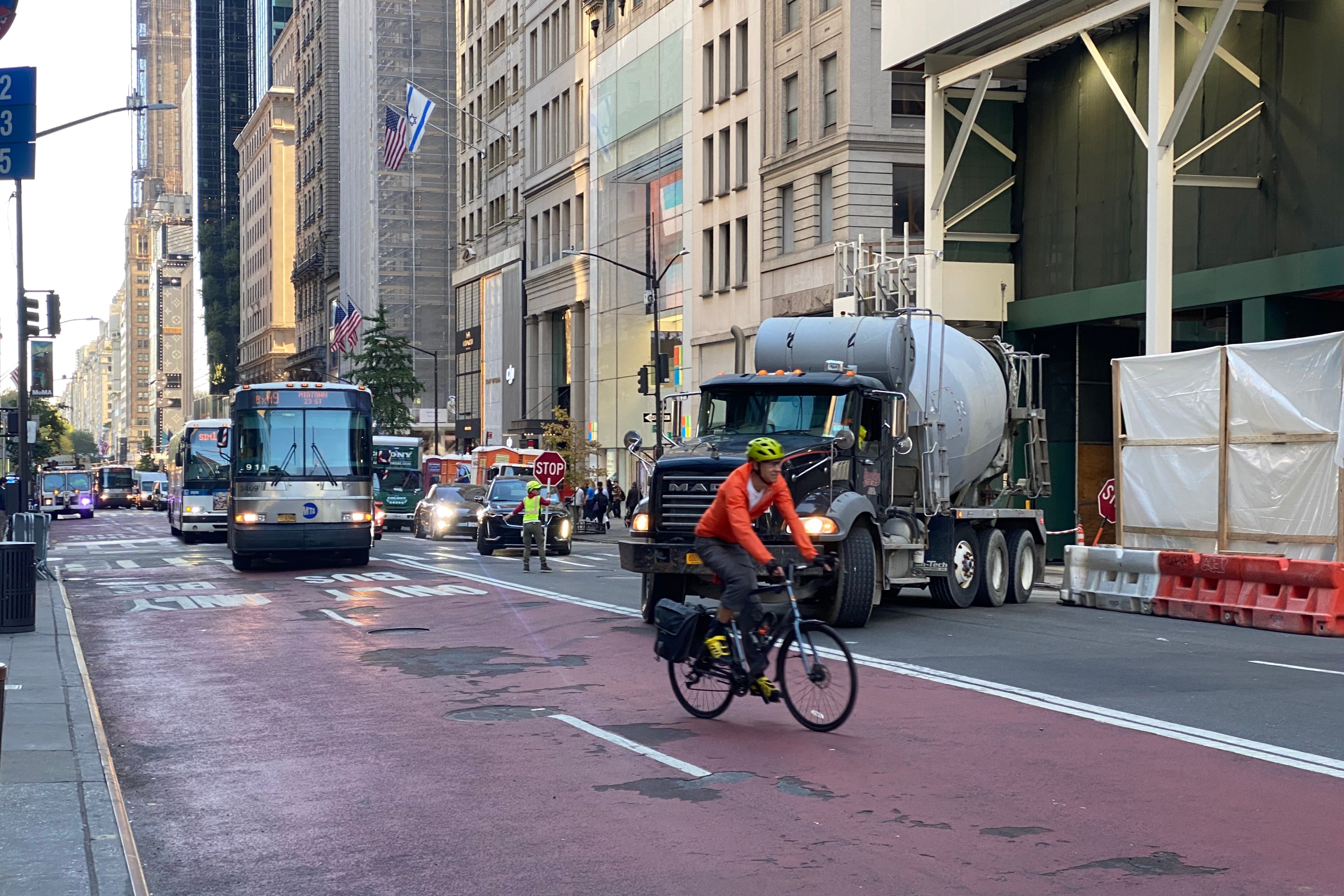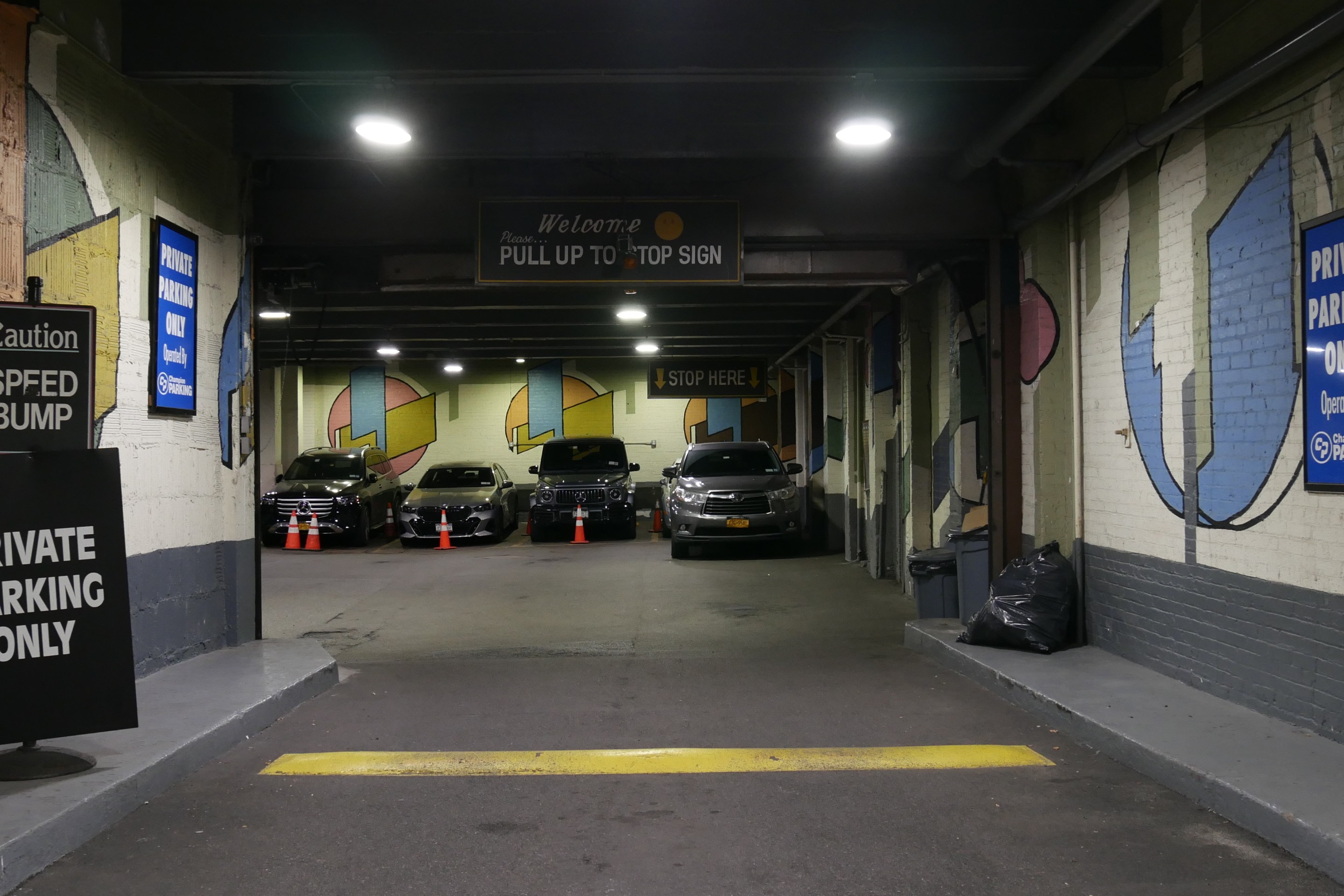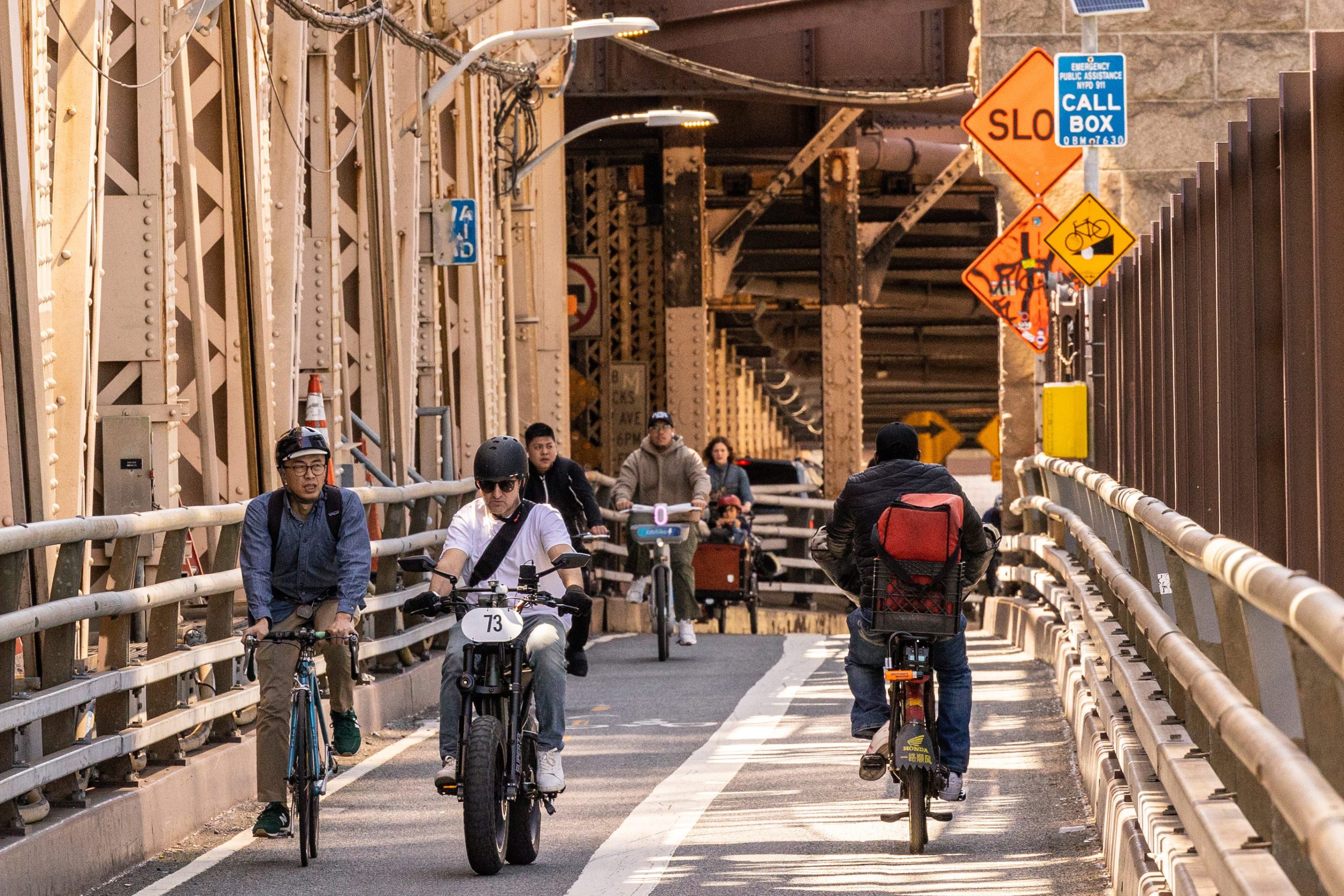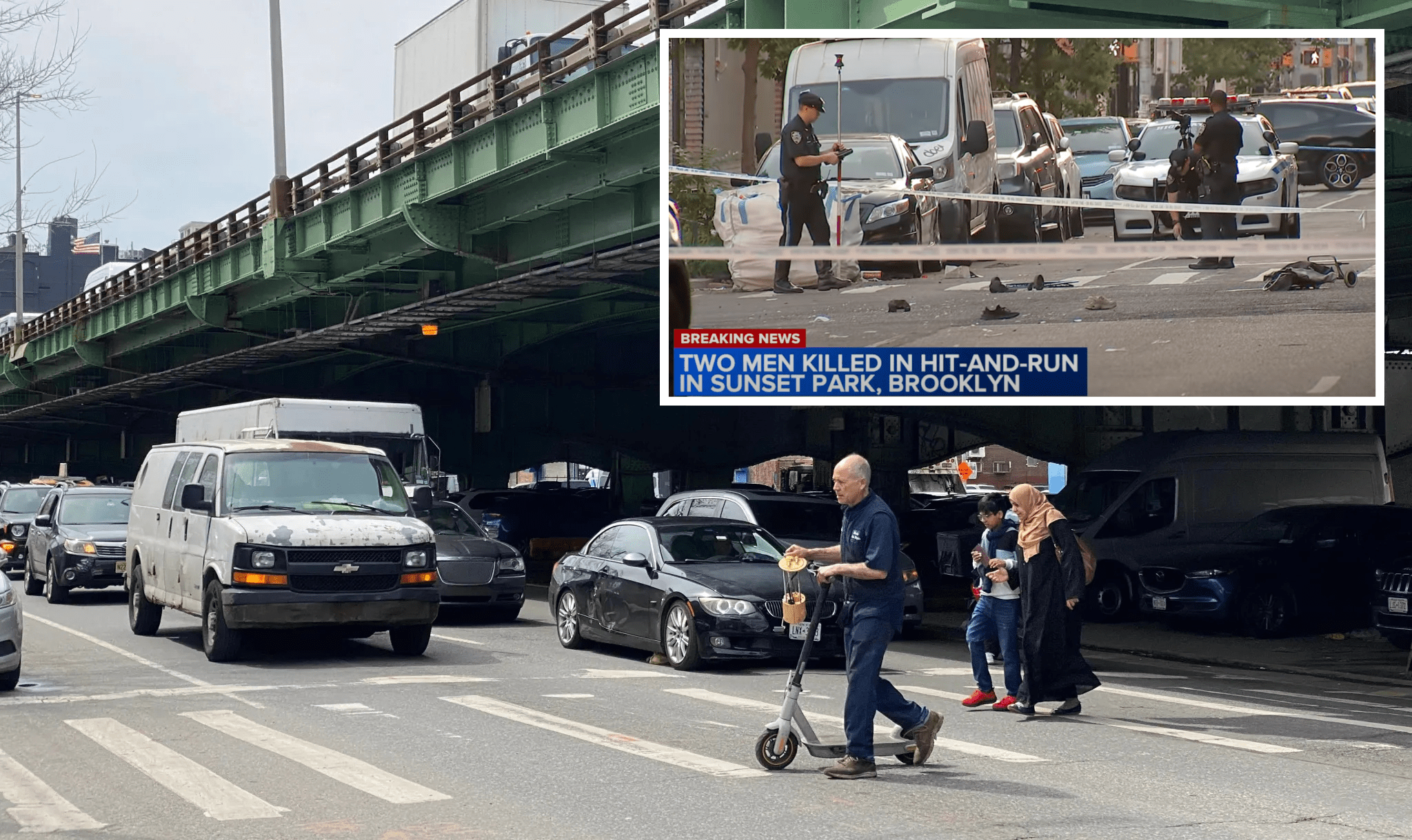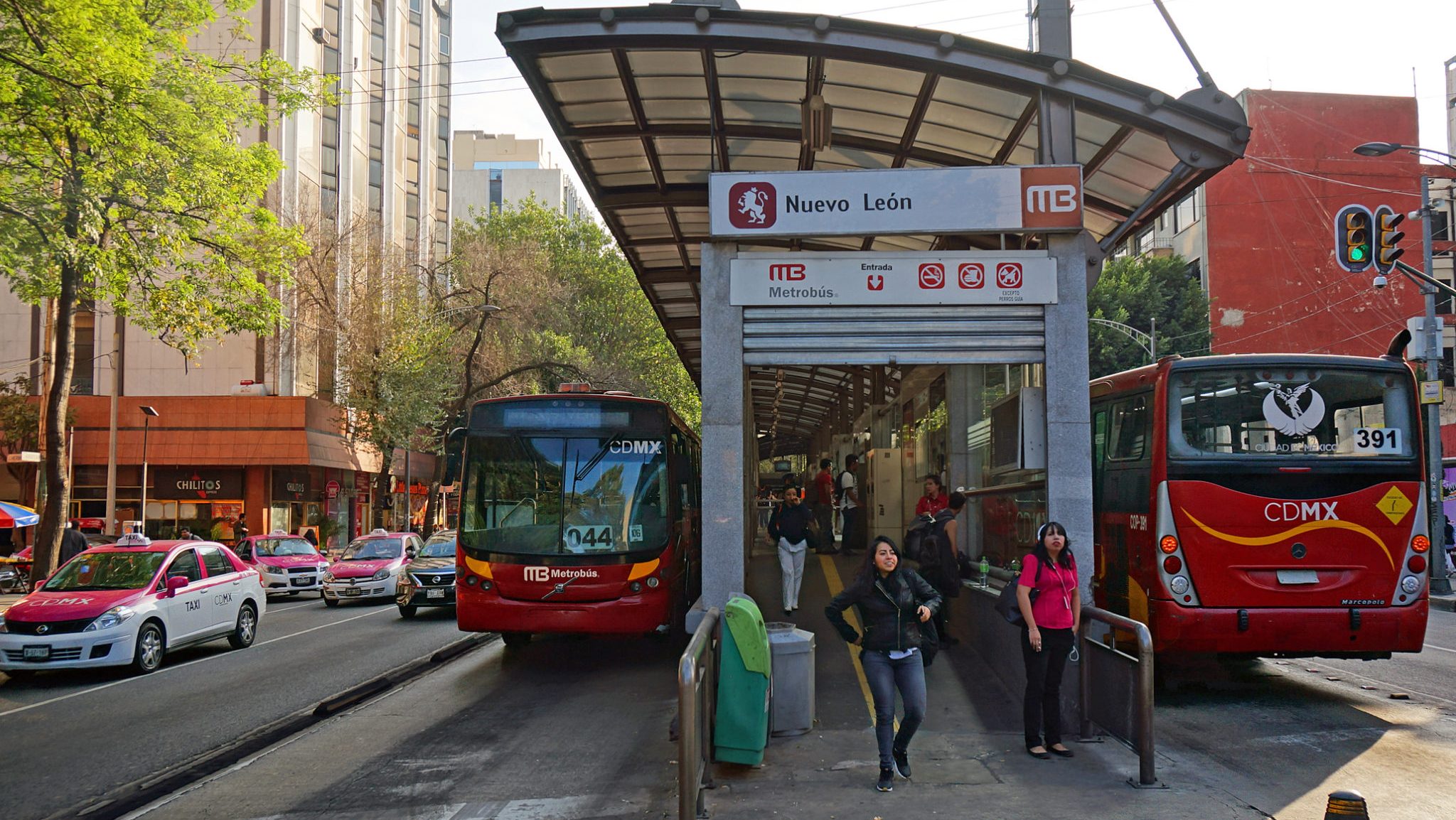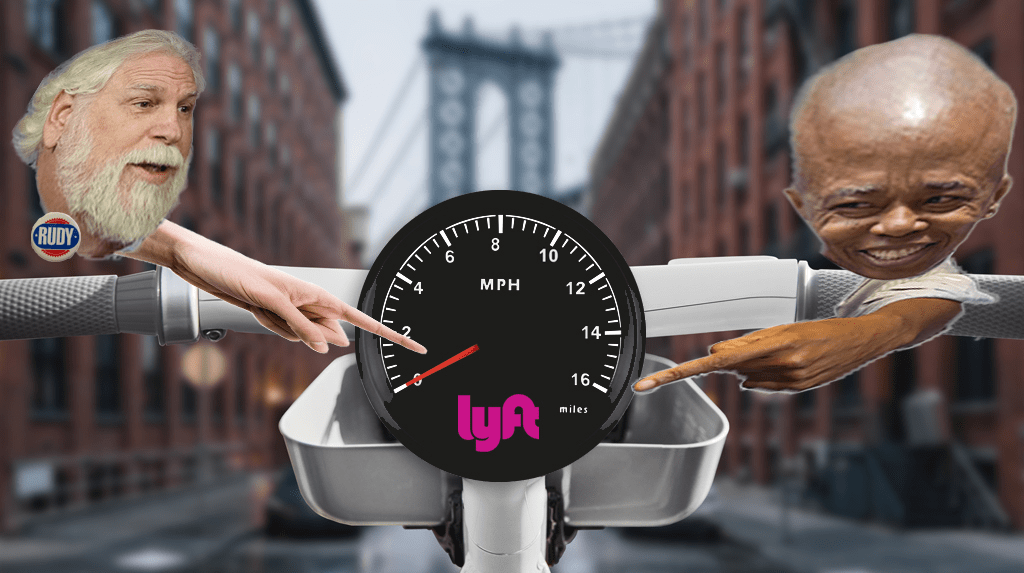Mayor Adams is pushing the City Council to keep the Department of Transportation in charge of outdoor dining, rather than move it to the much smaller Department of Consumer and Worker Protection, a move that advocates fear would sabotage the popular al-fresco "streeteries."
DOT has been running the two-year-old Open Restaurant program since its Covid-era birth — and it has grown to roughly 10 times the size of the pre-pandemic sidewalk café program regulated by DCWP, according to a City Hall spokesman.
The Adams administration, spokesman Charles Lutvak said, believes the program — currently being formalized with long-delayed Council legislation — would be best administered "through a single, streamlined program continuing under DOT, which has ... a proven track record of standing up a widely popular, highly successful, and now strongly enforced program."
The Council's original bill from February to make permanent the pandemic program would shift primary responsibility to DCWP, and restrict dining structures in the roadway to only the warmer months — a non-starter, restaurateurs previously told Streetsblog because of the cost to build, dismantle and store sheds every year simply because of a winter ban.
Mayor Adams wants to have a bill signed by the end of the year, according to City Hall, and people with knowledge of the negotiations told Streetsblog it could come up for a vote in early November.
Despite having a clear preference on the agency the mayor wants in charge, Lutvak declined to say if Hizzoner, a great advocate for nightlife, wants to keep the roadway structures in place year-round.
Prior to the Covid-19 outbreak, DCWP regulated the city's sidewalk cafés, which had some 1,300 participating businesses. Open Restaurants — launched under former Mayor Bill de Blasio in 2020 — now counts around 13,000 participating eateries.
Advocates said the Council's current bill would pull the rug out from the program.
"It’s our understanding that putting the program with DCWP would essentially kill it, because they don’t have the budget, the personnel, or the expertise to manage the program," said Sara Lind, the chief strategy officer with Open Plans (full disclosure: a sister organization of Streetsblog). "It would basically be taking the program and focusing it solely on businesses rather than on public space."
New hurdle that could kill outdoor dining: a push to move it from @NYC_DOT to @helloDCWP 🚨 But let's let DOT build on 2 yrs of work. NYers love the program! & it should be developed as part of a modern street (re)vision. Bike & bus lanes, daylighting, loading zones...DOT things. pic.twitter.com/wYKkRGLByU
— Open Plans (@OpenPlans) October 20, 2022
The $1.4-billion DOT is far better equipped to handle the mammoth initiative than the $70-million DCWP, said former DOT Deputy Commissioner Michael Replogle, who helped craft the restaurant program in the spring of 2020. Moving it to the smaller agency could lead to less oversight — especially as Mayor Adams wants city offices cut costs and amid staffing shortages.
"It’s been a successful program under DOT, why rock the boat?" said Replogle, who left the agency in the summer of 2021. "If some other agency takes it over, they are going to have to consult with DOT anyway about the program."
Outdoor dining boosters with the group Alfresco NYC — a coalition of the Regional Plan Association, Design Trust for Public Space, and Tri-State Transportation Campaign — said Open Restaurants and its sister program Open Streets are so vital because they reallocate street space away from cars toward dining, neighborhood events, and basic open space long surrounded to drivers. And that's another argument for keeping the program with DOT, advocates added.

"However the streets are used, you need them to be part of a broader vision of public space, and seeing the streets as something beyond just the movement of traffic," said Kate Slevin, executive vice president at RPA. "There’s a lot of demand for that curb space. The least effective use of that space is just having parked cars sitting there."
Transportation officials have also been better to work with than their Consumer and Worker Protection counterparts in the past, said Charlotta Janssen, owner of Chez Oskar, a restaurant in the in Bedford-Stuyvesant section of Brooklyn.
"I’ve found that DOT is a lot more collaborative and they are willing to explore. I think that they have their priorities right," said Janssen, recalling a struggle to get a permit for some outside tables and chairs in the early 2000s. She claimed she was forced to close for 10 days by DCWP (then called the Department of Consumer Affairs) because one patron moved a seat a few inches outside the demarcated zone.
"These are not the people who should be in charge. They’re like really strict police officers and punishers rather than collaborators," Janssen said.
The Council's legislation to make the dining program permanent has several sticking points, including what the new structures could look like and the months during which businesses can use the curbside lane.
The Council bill's sponsor, Council Member Marjorie Velázquez (D–Bronx), declined to comment. Streetsblog and other outlets have been trying to discuss the bill with Velázquez for months, prompting one New York political wag to note, “She is proposing major changes to this citywide program. At the same time she has consistently refused to answer any questions from the press about her proposals. This is no way to legislate. The entire industry deserves answers from Council Member Velazquez instead of being left in the dark.”
Meanwhile, Council Speaker Adrienne Adams is also being cagey. Last month at a Citizens Union breakfast, she said that the dining structures should remain off the road entirely.
But she later told Streetsblog that the comment was merely her "personal opinion" and that outdoor dining is a "beautiful thing for the City of New York," but that "the characteristics of New York have to be maintained."
Speaker Adams's office did not respond to a request for comment for this story.
De Blasio cleared the way for lawmakers to craft the program in late 2021, but the Council bill has been stuck in limbo for the last eight months — in part thanks to lawsuits by critics who took issue with noise and a loss of parking, and made shaky claims that the structures are to blame for surging rat populations.
The 0.3-percent reduction in private car storage for Open Restaurants saved some 100,000 jobs during the coronavirus crisis, city officials estimate, and it is still driving Gotham's slow comeback by helping restaurants make up for pandemic losses, according to the executive director of the New York City Hospitality Alliance, which represents tens of thousands of restaurants.
"People may see busy restaurants, but they have to understand that doesn’t equate to a financially healthy industry," said Andrew Rigie. "You can walk around neighborhoods in the city and you can see how many people love dining al fresco, so it’s an important part of the business model."

